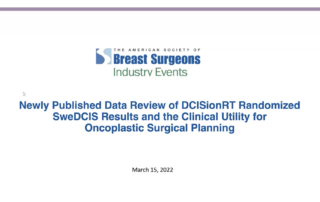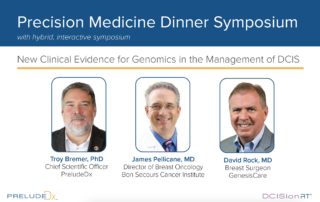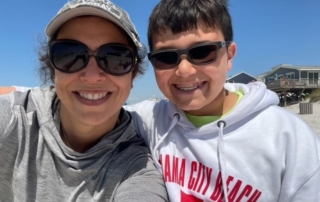Experts’ in Surgical Oncology and Radiation Oncology Perspectives on Randomized SweDCIS Study and Clinical Utility of DCISionRT
Troy Bremer, PhD; Pat Whitworth, MD; Chirag Shah, MD; Anne Peled, MD; and Karen Barbosa, DO, FACOS discuss the recently published randomized SweDCIS data and how they are utilizing DCISionRT in clinical practice.




